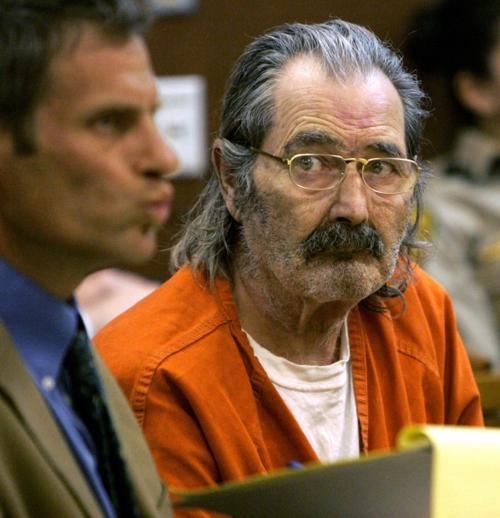Last year on Good Friday, Jill McCain's husband was shot to death in front of a roomful of witnesses at his south-side business.
This year on Good Friday, McCain learned the man charged with his murder will never be prosecuted and may soon be walking free because of a quirk in the law.
Three doctors have determined Curtis Bunton, 68, is incompetent to stand trial and cannot be restored to competency.
As a result, Pima County Superior Court Judge Howard Fell dismissed Bunton's pending murder case Wednesday and ordered him released from jail.
The judge also told prosecutors they should consider having Bunton civilly committed or a guardian appointed.
In order for someone to be civilly committed, doctors have to determine they are "persistently or acutely disabled or gravely disabled" by mental illness.
Because Bunton has been rendered incompetent because of a stroke, McCain said she is terrified he won't be civilly committed.
Bunton has been transferred from the Pima County jail to UPH Hospital at Kino for evaluation.
"The entire state or community should be totally outraged. Curtis Bunton is a murderer who is going to be put out on the streets of our community," McCain said. "This murderer has nothing to lose by committing any other crime, including murder. He knows where we all live. He lived where we all work."
She said Bunton is likely angry because not only has he spent the last year in jail, but she was awarded a $1.5 million civil judgment against him in February.
According to court testimony, Charles McCain found Bunton squatting on his commercial property on the city's south side several years ago. McCain allowed Bunton to stay in a trailer on the property if Bunton would watch over the property at night, make small deliveries and run errands for the fiberglass products company.
In the fall of 2009, Bunton had a stroke which severely affected his ability to speak and write.
One of McCain's daughters, Michelle Sinclair, recently testified Bunton grew irritated with her and her father because they repeatedly urged him to apply for Social Security, going so far as to fill out forms for him.
James Griffin testified that on April 2, 2010, Bunton walked into McCain's office and pointed a gun at him.
When Griffin told him to shoot him or put the gun down, Bunton put the gun down.
Griffin found McCain's body and several distraught employees after Bunton urged him to go to McCain's shop. He called 911.
Jill McCain agrees Bunton was irritated about the benefits, but also believes he shot her 61-year-old husband because he planned to let his employees leave early that day, leaving Bunton no way to get to his doctor's appointment at the Veterans Administration.
The judge's decision came after months of legal wrangling and several doctors visits. McCain and her children attended every hearing.
The three doctors who evaluated Bunton found that because he can't write and can't speak well he can't help Assistant Pima County Public Defender Leo Masursky mount a defense, one of the qualifications for a competent defendant.
One doctor also indicated she believes Bunton's stroke may have affected his ability to receive information.
None of the doctors thought Bunton was exaggerating or faking his symptoms.
David Berkman, Pima County's chief criminal deputy attorney, said his office intends to appeal Fell's decision because Deputy Pima County Attorney Lewis Brandes was not provided certain documents pertaining to Bunton's mental and medical condition.
In addition, Fell did not allow a neuropsychologist hired by the state to examine Bunton despite Brandes' repeated requests.
Brandes tried to convince Fell that Bunton has the ability to communicate by showing his police interrogation and by having Sinclair and Griffin testify about their interactions with Bunton following his stroke. Both testified Bunton was able to get his point across.
The prosecutor and McCain's family also pointed out Bunton appeared to be communicating with Masursky during his final hearing, April 4.
But Fell said it was important to note that the state's doctor, James Sullivan, agreed Bunton would be incompetent if he could not understand, as an example, his right to testify or be able to ask Masursky questions about his right to testify.
Sullivan also testified most recovery happens within nine months of a stroke and that time has already elapsed in Bunton's case, Fell noted.
Masursky described the case as a "sad and tragic" one for everyone involved, but said Fell strictly adhered to the law.
"If you don't do that, all of our constitutional rights go in the toilet," Masursky said. "How do you pick when to apply the law? You've got to apply them to everyone."
Contact reporter Kim Smith at 573-4241 or kimsmith@azstarnet.com





